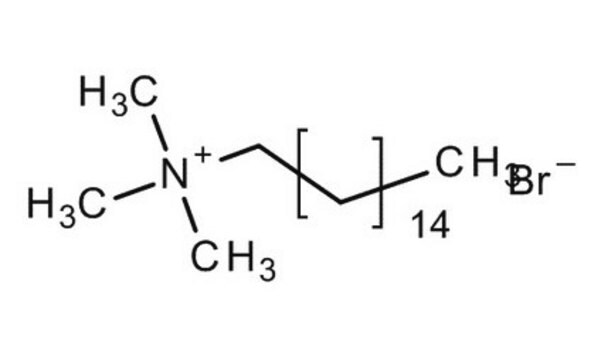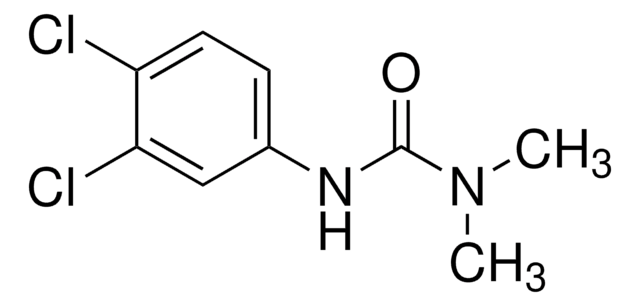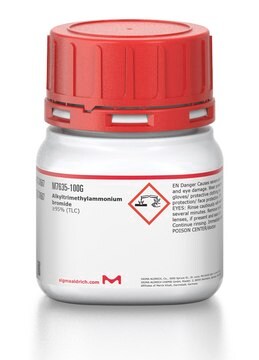36932
Hexadecyltrimethylammonium bromide
analytical standard
Synonym(s):
CTAB, Cetrimonium bromide, Cetyltrimethylammonium bromide, Palmityltrimethylammonium bromide
About This Item
Recommended Products
grade
analytical standard
Quality Level
description
cationic
Assay
98-102%
shelf life
limited shelf life, expiry date on the label
mol wt
364.45 g/mol
technique(s)
HPLC: suitable
gas chromatography (GC): suitable
mp
248-251 °C (lit.)
solubility
H2O: soluble 36.4 g/L at 20 °C (completely)
application(s)
cleaning products
cosmetics
environmental
food and beverages
personal care
format
neat
SMILES string
[Br-].CCCCCCCCCCCCCCCC[N+](C)(C)C
InChI
1S/C19H42N.BrH/c1-5-6-7-8-9-10-11-12-13-14-15-16-17-18-19-20(2,3)4;/h5-19H2,1-4H3;1H/q+1;/p-1
InChI key
LZZYPRNAOMGNLH-UHFFFAOYSA-M
Looking for similar products? Visit Product Comparison Guide
General description
Application
- CTAB in various water samples by combining a dispersive liquid-liquid microextraction (DLLME) technique with high performance liquid chromatography.
- CTAB in pharmaceutical formulations by reversed-phase high-performance liquid chromatography (RP- HPLC).
Signal Word
Danger
Hazard Statements
Precautionary Statements
Hazard Classifications
Acute Tox. 4 Oral - Aquatic Acute 1 - Aquatic Chronic 1 - Eye Dam. 1 - Skin Irrit. 2 - STOT RE 2 Oral - STOT SE 3
Target Organs
Gastrointestinal tract, Respiratory system
Storage Class Code
11 - Combustible Solids
WGK
WGK 3
Flash Point(F)
471.2 °F - closed cup
Flash Point(C)
244 °C - closed cup
Personal Protective Equipment
Choose from one of the most recent versions:
Already Own This Product?
Find documentation for the products that you have recently purchased in the Document Library.
Customers Also Viewed
Our team of scientists has experience in all areas of research including Life Science, Material Science, Chemical Synthesis, Chromatography, Analytical and many others.
Contact Technical Service











